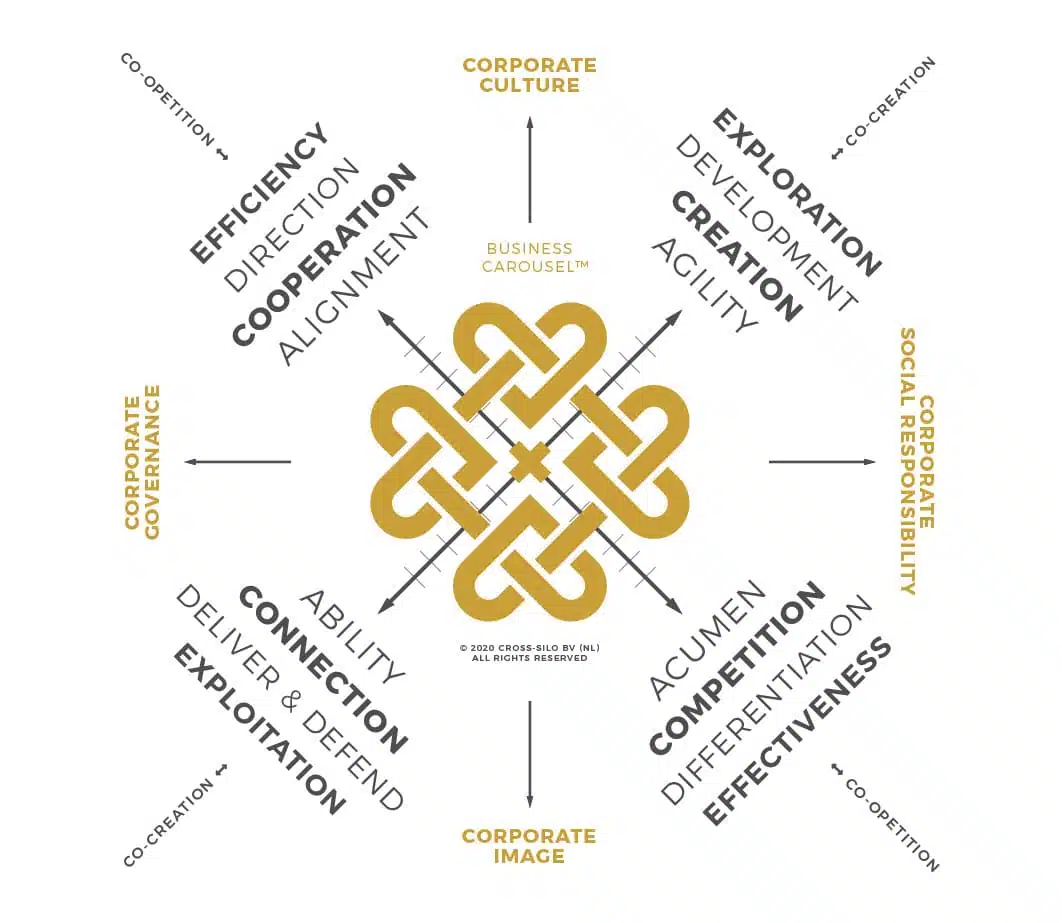In an era where relentless pursuit of annual growth reigns supreme among executives, a critical question emerges: At what cost does this growth come, especially when it exacts a toll on nature and stakeholders alike? The sustainability of such growth models is under scrutiny, pushing us to reconsider what truly signifies a thriving business.
True health in business extends far beyond mere growth metrics. It encompasses a holistic view that includes key performance indicators like Customer Retention Rate, the frequency of repeat business, levels of Customer Satisfaction, and the engagement of customers and employees, alongside the turnover rates of staff. These factors collectively offer a clearer picture of growth’s durability and sustainability.
Imagine a framework, a canvas where the intricate dance between various corporate elements unfolds:
- Corporate Culture: The tapestry of beliefs and behaviors that define an organization.
- Corporate Social Responsibility (CSR): A commitment to social accountability that extends beyond the boardroom.
- Corporate Image: The essence of a company’s reputation as perceived by the outside world.
- Corporate Governance: The structures and processes for direction and control that guide the company.
This framework is anchored in the dynamic interplay of:
- Cooperation: Harmonizing organizational efforts for a unified direction.
- Creation: The unique value generated sets a company apart from its rivals.
- Competition: Navigating the marketplace to secure a competitive edge.
- Connection: Fostering deep, meaningful relationships with customers.
For a company to survive and flourish, it must craft value that distinguishes itself from the competition and honors the interests of all stakeholders, including a responsibility towards society. Public perception and corporate reputation are inextricably linked to these ethical considerations.
Take, for example, Booking.com’s situation during the Coronacrisis. The decision to claim substantial government support following a dramatic drop in bookings, coming on the heels of a lavish $8 billion expenditure on share buybacks, sparked a debate on social responsibility. Neglecting social commitments can lead to severe repercussions for a company’s image, potentially culminating in consumer boycotts.
This narrative compels us to rethink growth, not as an end but as a journey marked by ethical considerations, stakeholder engagement, and a commitment to sustainability. In this vision, success is measured not by the heights reached but by the depth of the impact made, fostering a business ecosystem that thrives on balance, responsibility, and genuine connections.
KEY DIMENSIONS OF GROWTH
Envision a company not as a mere entity but as a vibrant collective of people united by a joint mission to innovate, create, and deliver value that resonates with distinctiveness and relevance. This is where the strength of customer relationships quickens the firm’s pulse—a testament to the shared journey of discovery, creation, and delivery.
Within this dynamic sphere, two dimensions emerge as paramount to the success and longevity of the business: co-creation and co-opetition:
- Co-creation represents the synthesis of ideas, aspirations, and objectives, a harmonious interplay between a company and its customers. It’s a fusion of capital, capabilities, and culture, orchestrated to craft offerings of profound significance—solutions that satisfy needs and elevate experiences. Co-creation is the pathway to unlocking unparalleled engagement, fostering a bond where every customer interaction feeds into a cycle of continuous value generation.
- Co-opetition, on the other hand, is a ballet of balance between collaboration and competition. In an era where the platform economy reigns, and digital value chains stretch across horizons, co-opetition is the strategic embrace of shared objectives amongst competitors. It’s an acknowledgment that the interweaving of cooperative endeavors with competitive spirit can lead to a tapestry of innovation and mutual success, crucial for thriving in the complex ecosystems of modern business.
This image above encapsulates the essence of a business operating beyond the traditional confines, thriving in a space where collaboration sparks innovation, and competition fuels growth. It’s where a company’s culture, social responsibility, reputation, and governance converge, aligning cooperation, creation, competition, and connection—crafting not just a business but a legacy.













